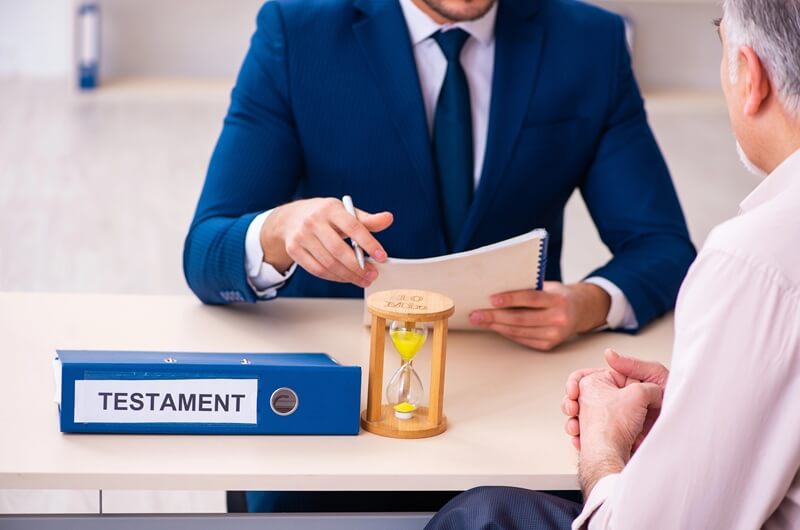How To Appeal A Probate Court Decision In Litigation
Quick Recap:
Appealing a probate court decision in California is possible, but only certain rulings qualify. Appeals focus on legal or procedural errors, not new evidence. The process requires filing a notice, preparing the case record, and submitting appellate briefs, with possible oral arguments before judges. Strict deadlines and costs make the process challenging, so careful planning is vital.
A probate court ruling can shape your future, especially when it impacts inheritance or family estates. If the decision doesn’t sit right, you may have legal options. Probate law allows for appeals under specific conditions. You just need to understand how to get started.
Appeal a probate court decision don’t need to be complicated but require clarity, timing, and legal insight. We’ll walk you through the whole process, from understanding your rights to filing your case. You’ll also see how our firm can guide you each step of the way.
What It Means To Appeal A Probate In California?
Probate cases handle the transfer of assets after someone passes away. These legal decisions can involve money, property, and family relationships. In California, an interested party cannot appeal every probate ruling. Only final or specific orders meet the legal requirements for appeal.
Which Probate Court Decisions Can Be Appealed?
Appealable decisions include orders about distributing assets, settling accounts, and appointing or removing an estate representative. If the decision ends a legal issue, it may qualify. Interim or administrative rulings typically do not meet the bar. That’s why legal review is vital.
The Difference Between Appeals & Retrials
Many people confuse appeals with retrials. But the two are very different. An appeal focuses only on how the lower court interpreted the law. You can’t introduce new evidence or witnesses, so accuracy in previous filings matters.
When A Writ Of Mandate May Be An Option
Another legal route might apply if the issue you’re facing isn’t eligible for appeal. Some people consider filing a writ of mandate instead. It allows limited review for non-final issues. A skilled probate attorney can help determine the best legal path.
Understanding whether a decision is appealable is step one. Next, we’ll discuss the legal reasons why someone might challenge a court ruling.
Identifying The Grounds For Filing An Appeal
To win an appeal, you must prove the court made a legal mistake to win an appeal. This mistake must have directly impacted the outcome. A judge may have applied the wrong law or misread a statute. It’s not about fairness, it’s about accuracy under the law.
Procedural Errors
You can challenge procedural errors. These include situations where someone didn’t receive proper notice or they ignored the deadlines. You may have a case if the court skipped mandatory steps or violated due process. The mistake must have caused harm.
Abuse Of Discretion
Another legal ground is abuse of discretion. It means the judge made a decision that no reasonable person would support. It’s a strict standard, but it applies in some cases. Evidence must clearly show that the ruling was not based on sound reasoning.
Knowing these grounds helps you decide whether an appeal makes sense. Without legal error, your chances are low. But if a clear issue exists, you can overturn the decision. Now let’s dive into the appeals process itself.
Knowing The Probate Process Step-By-Step
Appealing a probate decision involves strict procedures. The steps must follow a sequence, without delay or omission. Courts don’t allow shortcuts or exceptions. From filing to oral arguments, each part requires careful planning and execution.
1. Determining Eligibility To Appeal
You must start by checking if the court’s decision is final. Temporary rulings or directions don’t qualify. The appeal must also rest on solid legal ground, not emotional disagreement. You need a clear legal reason to move forward.
Consulting with an attorney can save time and effort. They can review your order and advise if it qualifies for appeal. If it doesn’t, they may suggest alternative legal routes. Accuracy here avoids wasted time and resources.
Not all decisions deserve an appeal. But when they do, it’s critical to act quickly. Once eligibility is confirmed, you’re ready for the next step, filing your notice of appeal.
2. Filing The Notice Of Appeal
Deadlines are strict. In most cases, you have 60 days from receiving notice of the judgment. If you did not receive a notice, the window extends to 180 days. Miss the deadline, and your right to appeal is lost.
The notice must include correct case numbers, party names, and court details. It’s filed with the Court of Appeal and served on all parties. Mistakes in this filing can derail the entire process. A probate lawyer ensures the paperwork is accurate and on time.
Once you’ve filed, the appeals process officially begins. The next step is compiling the trial record, which forms the basis of your appeal.
3. Preparing The Record On Appeal
The record includes everything from the original case, transcripts, motions, orders, and exhibits. It’s your only evidence during the appeal. Missing items can weaken your case. So, collecting the full, correct record is a critical step.
The record has two formats: clerk’s transcript and reporter’s transcript. Some appeals use summaries instead. Your lawyer will decide what to include based on your case needs. The appellate court will only review what’s in the record.
Building the record takes time and attention to detail. Once complete, it’s time to write and submit your legal arguments. That happens through written briefs.
4. Drafting & Filing Appellate Briefs
Your first brief explains the errors and why they matter. It’s called the Appellant’s Opening Brief. This document must be persuasive, well-organized, and supported by law. It sets the tone for your appeal.
The other side responds with their own brief. They’ll argue why the court was correct. After that, you get one more chance to reply. The Appellant’s Reply Brief is your opportunity to refute their points. These documents are the core of your appeal.
Judges often decide based solely on the briefs. But some cases move forward to oral arguments, which we’ll cover next.
5. Creating Oral Argument
Not every appeal gets an oral hearing. But if yours does, it’s a valuable opportunity. You or your attorney will present the case before a panel of judges. They’ll ask questions and dig into the arguments made in your briefs.
You won’t present new facts, just clarify the legal points. The judges will test your logic and challenge your conclusions. This back-and-forth helps them decide the case. It’s fast-paced, formal, and high-stakes. After the hearing, there’s one last stage, waiting for the court to rule. Let’s look at what happens next.
6. Awaiting The Appellate Court’s Decision
The court reviews the record, briefs, and oral argument. They issue a written decision, sometimes weeks or months later. This decision explains what they found and what happens next. It could affirm, reverse, or modify the original ruling.
If the court affirms, the probate court’s decision stands. If reversed, the case may go back for another hearing. Modifications change part of the ruling but leave the rest. Each result has legal consequences. The final decision marks the end of the appeal.
However, new options might open based on the outcome. Now let’s look at what can make the process difficult.
Comprehending Challenges & Considerations
Appeals are tough, partly because the court won’t re-try your case. They only check for mistakes in law or process. That means your case must be built on solid legal reasoning, not emotion or personal opinion.
Costs are another factor. You’ll pay for transcripts, filing fees, and possibly opposing party costs. Appeals aren’t cheap, and losing can be expensive. That’s why it’s vital to weigh the financial risks before starting.
Deadlines are strict and unforgiving. One missed filing date can end your case. Working with professionals helps avoid costly errors and keeps everything on track. Understanding these challenges can prepare you for what lies ahead. Let’s discuss how our legal team can make the journey smoother.
Let’s Work Together To Appeal Your Case
At Los Angeles Probate Attorneys, we focus on probate cases, especially appeals. Our lawyers know what courts look for and how to build a strong case. We start by reviewing your situation carefully. If we see a real opportunity, we act fast.
We don’t just file paperwork. We work closely with you to plan the strategy, explain your rights, and handle court appearances. You’ll never be in the dark. We keep communication clear and updates regular.
Our firm combines legal knowledge with practical service. We’re not here to waste your time but to get results. We’re prepared to go to work if you’re ready to appeal.
We Help You Act Fast & Plan Strategically
Appealing a probate decision in California is possible, but not automatic. You must show that the court made a legal or procedural mistake. You must also act fast and follow every step exactly. Appeals require planning, focus, and legal experience to succeed.
Our team at Los Angeles Probate Attorneys is here to help. We guide clients through the process, offer straightforward legal advice, and stand with you in court. Whether you’re starting an appeal or responding to one, we’ll fight for the best possible outcome.










